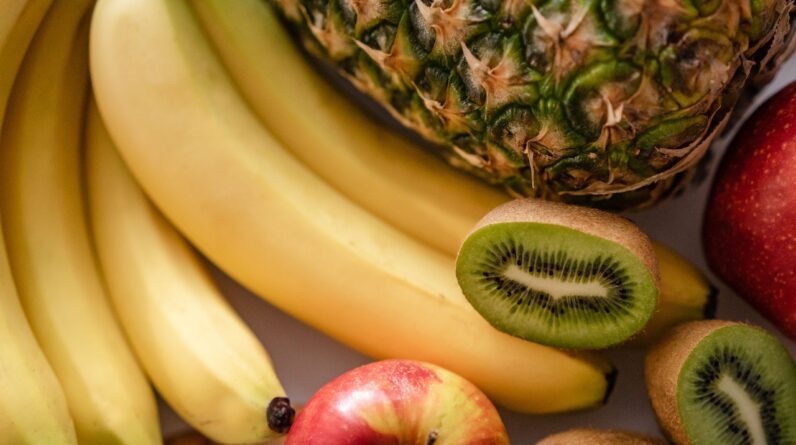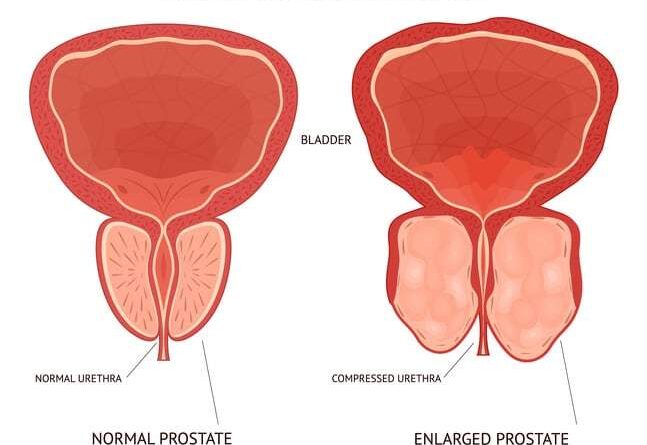
Introduction
Losing weight is a goal for many individuals seeking to improve their overall health and well-being. However, with an abundance of diets and weight loss strategies out there, it can be challenging to determine the best approach for shedding those extra pounds. This article will explore the factors affecting weight loss, popular diets, and ultimately reveal the best diet to achieve effective and sustainable weight loss.
Understanding Weight Loss
What is Weight Loss?
Weight loss refers to the process of reducing body weight, primarily by losing fat tissue. It occurs when the body’s energy expenditure exceeds its caloric intake, leading to a negative energy balance.
Why is it Important?
Maintaining a healthy weight is vital for overall health and can reduce the risk of various chronic conditions, including heart disease, diabetes, and certain cancers.
The Science Behind Weight Loss
Weight loss is governed by the laws of thermodynamics, where calories consumed are compared to calories expended. To lose weight, you must burn more calories than you consume.
Factors Affecting Weight Loss
Metabolism
Metabolism plays a crucial role in weight loss. Some individuals naturally have faster metabolisms, making it easier for them to burn calories and lose weight.
Caloric Intake vs. Expenditure
Controlling caloric intake and increasing physical activity are essential for weight loss. A balanced diet and regular exercise can create a caloric deficit necessary for shedding pounds.
Genetics and Body Composition
Genetics and body composition can influence how your body stores and burns fat. Some people may find it easier to lose weight than others due to genetic factors.
Lifestyle and Habits
Lifestyle choices, such as sedentary behavior or emotional eating, can significantly impact weight loss efforts.
Popular Diets for Weight Loss
Ketogenic Diet
The ketogenic diet is a high-fat, low-carbohydrate eating plan that can lead to rapid weight loss by inducing a state of ketosis.
Mediterranean Diet
The Mediterranean diet emphasizes whole foods, healthy fats, and lean proteins, promoting sustainable weight loss and overall well-being.
Intermittent Fasting
Intermittent fasting involves cycling between periods of eating and fasting, which can aid in weight loss by regulating hormones and calorie intake.
Plant-Based Diet
A plant-based diet focuses on whole, plant-derived foods, which are low in calories and high in nutrients, facilitating weight loss.
The Best Diet to Lose Weight
Personalization is Key
There is no one-size-fits-all approach to weight loss. Personalizing your diet based on individual needs and preferences is essential for success.
Balancing Nutrient Intake
A balanced diet that includes a variety of nutrients, such as proteins, carbohydrates, fats, vitamins, and minerals, is crucial for overall health and effective weight loss.
Portion Control
Monitoring portion sizes can prevent overeating and help control caloric intake, contributing to weight loss.
Incorporating Physical Activity
Pairing a healthy diet with regular physical activity is the most effective way to achieve sustainable weight loss.
Tips for Successful Weight Loss
Set Realistic Goals
Setting achievable and realistic weight loss goals helps to maintain motivation throughout the journey.
Keep a Food Journal
Keeping a food journal can increase awareness of eating habits and aid in identifying areas for improvement.
Stay Hydrated
Drinking plenty of water not only promotes overall health but also helps control appetite and supports weight loss efforts.
Get Enough Sleep
Adequate sleep is essential for weight loss, as it regulates hormones that affect appetite and metabolism.
Manage Stress
Stress can lead to emotional eating, so finding healthy ways to manage stress is crucial for successful weight loss.
The Role of Exercise in Weight Loss
Types of Exercise for Weight Loss
Incorporating a mix of cardiovascular exercises, strength training, and flexibility exercises can maximize weight loss benefits.
Creating an Exercise Routine
Developing a consistent exercise routine makes it easier to stay committed to physical activity.
Combining Diet and Exercise
A combination of a healthy diet and regular exercise yields the best results for weight loss and overall health.
Avoiding Common Weight Loss Pitfalls
Crash Diets
Crash diets may lead to rapid weight loss, but they are often unsustainable and can be harmful to health.
Over-restriction
Extreme calorie restriction can slow down metabolism and hinder weight loss progress.
Ignoring Nutritional Value
Focusing solely on caloric intake may lead to nutrient deficiencies, impacting overall health.
Unrealistic Expectations
Setting unrealistic weight loss expectations can lead to disappointment and loss of motivation.
Maintaining Weight Loss
Gradual Transition from Dieting
Gradually transitioning from a weight loss diet to a balanced maintenance diet is essential for preventing weight regain.
Adopting a Sustainable Lifestyle
Incorporating healthy habits into daily life promotes long-term weight maintenance and overall well-being.
Regular Check-Ins and Adjustments
Regularly reassessing dietary and exercise habits allows for necessary adjustments to stay on track with weight loss goals.
Healthy Snacking Options
Importance of Snacks
Healthy snacks can provide sustained energy between meals and prevent overeating during main meals.
Nutritious Snack Ideas
- Greek Yogurt with Berries: Greek yogurt is rich in protein and calcium, and when paired with fresh berries, it becomes a satisfying and nutrient-dense snack.
- Mixed Nuts: A handful of mixed nuts, such as almonds, walnuts, and pistachios, provides healthy fats and protein, keeping hunger at bay.
- Carrot Sticks with Hummus: Carrot sticks are crunchy and low in calories, while hummus adds a dose of protein and flavor.
- Apple Slices with Peanut Butter: Apples are a good source of fiber, and peanut butter adds healthy fats and protein.
- Hard-Boiled Eggs: Hard-boiled eggs are a portable and protein-packed snack that keeps you feeling full.
Avoiding Unhealthy Snacking Habits
- Mindless Eating: Be mindful of what you’re eating and avoid snacking out of boredom or habit.
- Processed Snacks: Steer clear of processed snacks high in added sugars, unhealthy fats, and empty calories.
- Emotional Eating: Instead of turning to food for comfort, find alternative ways to cope with emotions.
- Late-Night Snacking: Try to avoid eating late at night as it can disrupt sleep and lead to unnecessary calorie consumption.
Dealing with Plateaus
Understanding Plateaus
Weight loss plateaus are common and occur when your body adjusts to your current eating and exercise habits, leading to a temporary halt in weight loss.
Strategies to Overcome Plateaus
- Reassess Your Diet: Look for any hidden sources of extra calories and reevaluate portion sizes.
- Mix Up Your Exercise Routine: Try new exercises or increase the intensity to challenge your body.
- Stay Hydrated: Drinking enough water can support metabolism and help with weight loss.
- Manage Stress: High levels of stress can affect hormone levels and hinder weight loss progress.
The Role of Water in Weight Loss
Hydration and Weight Loss
Drinking an adequate amount of water can boost metabolism and help control appetite, aiding in weight loss.
Tips to Increase Water Intake
- Carry a Water Bottle: Keep a water bottle with you throughout the day to remind yourself to drink water.
- Flavor Infusions: Add slices of lemon, cucumber, or berries to your water to make it more enjoyable.
- Set Reminders: Use alarms or smartphone apps to remind you to drink water regularly.
The Impact of Sleep on Weight Loss
Sleep and Metabolism
Lack of sleep can disrupt hormone levels, leading to increased hunger and a slower metabolism.
Establishing a Sleep Routine
- Consistent Bedtime: Try to go to bed and wake up at the same time each day, even on weekends.
- Create a Relaxing Bedtime Routine: Engage in calming activities before bedtime to promote better sleep.
In Conclusion
Effective and sustainable weight loss goes beyond following a fad diet or engaging in extreme restrictions. It involves understanding your body, making personalized choices, and adopting healthy lifestyle habits. The best diet to lose weight is one that is balanced, nutrient-dense, and fits your individual needs and preferences.
Remember, there is no quick fix for weight loss, and the journey may have its challenges. Stay patient, committed, and kind to yourself throughout the process. Focus on progress rather than perfection, and make gradual, lasting changes that will lead to a healthier and happier you.
FAQs:
- Can I lose weight without exercising?
- A: While exercise is beneficial for weight loss, you can still lose weight by focusing on a healthy diet and caloric deficit.
- Are all carbohydrates bad for weight loss?
- A: Not at all. Complex carbohydrates from whole foods like fruits, vegetables, and whole grains are essential for a balanced diet.
- Is it normal to experience weight loss plateaus?
- A: Yes, weight loss plateaus are common and can be overcome with small adjustments to your routine.
- Can stress hinder weight loss progress?
- A: Yes, high stress levels can lead to emotional eating and impact weight loss efforts.
- Should I avoid snacking altogether during weight loss?
- A: Snacking can be a part of a healthy diet if you choose nutritious options and practice portion control.







